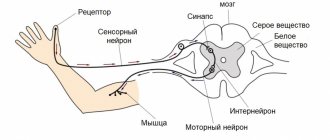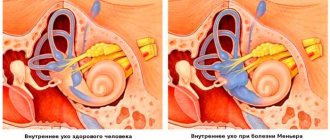What do you spend more time on: crying or exercising? Are you surprised that there is a connection between these processes? And she is. And this is quite an interesting fact. Let's look at what happens to our body when we cry, and also learn about some of the beneficial properties of tears. Then everything will become clear.
But first, here are some statistics obtained from recent research. After all, it is on these results that such interesting conclusions are based. So, 33% of American women surveyed admitted that they cry at least once a week. 60% of women do not pay enough attention to physical exercise, and 25% generally ignore physical activity in any form. It is now clear that women cry much more often than they exercise. And you can also guess that during both processes the body burns calories. But is crying as beneficial for the body as regular exercise? It all depends on what kind of tears you shed.
Types of tears
Crying can have an effect on our body. On the one hand, it is positive. However, a lot depends on what type of tears you shed. According to researchers, there are three types of tears - basal, reflex and mental. The former provide our eyes with the proper level of hydration. The latter allow you to get rid of any speck that has gotten into your eye. But still others appear when a person experiences strong emotions.
“Loneliness is not a problem”: Marina Fedunkiv about her previous experience of marriage
Youth returned: Irina Dubtsova surprised subscribers with a younger face
Lost dogs that came home and their photos may bring tears to your eyes
What happens if you cry a lot and get nervous?
From a medical point of view, tears are useful only for a single cry, when it is simply impossible to restrain emotions. But with periodic tearing you can get:
- Headache;
- Swelling under the eyes;
- High blood pressure;
- Pain in the eyes.
- Deterioration of vision.
Tears are a fairly toxic liquid. And they can be bad for your skin. Although, some myths say the opposite.
It is important to remember that crying is not a natural state of the body. Therefore, you are ruining your health with this habit. And this can lead to bad consequences.
Indifferent hypothalamus
Each of us has shed tears of happiness at some point. What about being scared or upset? These are also reasons for tears. And there can be a huge number of such reasons. And the most interesting thing is that the part of our brain responsible for our tears cannot even determine why we cry in a given situation.
We are talking about the hypothalamus, a small part of the brain about the size of an almond. When we are happy or sad, the hypothalamus performs the same task - to respond. It receives a signal from another part of the brain - the amygdala, which processes information about the emotions we experience. But what type of emotions these are, the hypothalamus cannot recognize, even when it forces the tear ducts to work hard.
Everything will change
It is impossible to explain that there is a different internal state to a person for whom everything is bad now.
Life and personality will change - the internal state will change. Emotions will change.
You just have to believe that it will happen. And continue to improve your life and work on different areas of your life.
And it’s clear that you don’t have to be “Harold, who hides the pain.” Just know that with upgrading yourself as an individual and upgrading your life, this constant pain itself from various life and everyday reasons will go away. Even if it now seems to you that what I’m talking about is not right, and the pain is objective, and tears about the fact that you were rude or no one needs you are normal. This will also change as you work on yourself and the attitudes in your head.
Well, I’m not talking here about clinical cases of depression.
Substitute for training
As already noted, Americans do not have the opportunity to devote much time to sports, but crying is also an exercise. Surely you have seen a child tantrum, then you understand exactly how active crying can be. Sobs shake the whole body. The skin may become blotchy and you may experience a headache. The heart experiences increased stress, the body reacts with increased sweating. This is also a kind of training for the body, during which the body actively burns calories.
Stress and overeating: the doctor explained why you have nightmares
Georgia opens border to Russians, but there are rules for visiting it
Europe may freeze: scientists note weak ocean current
How long do you cry every day?
Prolonged crying is a reason to consult a specialist to find out the cause of this condition. It is important not to deplete the body’s defenses or cause psychological imbalance.
During the week
Crying for a week is a worrying sign. You can conduct an experiment and try to distract yourself with:
- solving everyday issues;
- watching your favorite movie;
- a walk in the fresh air;
- physical activity: running, yoga, push-ups, squats.
It is important to concentrate and direct efforts to the root cause of tears. It helps a lot of people to talk it out. Sometimes people practice talking to strangers: on a train, on a bus, and it acts like a first-class psychotherapy session.
For a month
Crying for a month can cause visual impairment. A person begins to have a headache. During this period, many resort to the use of herbal sedatives and begin to look for help outside.
People who cry at the slightest reason are often very suspicious and touchy.
This has a bad effect on your mental state and physical well-being. It is important to work through character traits that worsen your own life and the lives of those around you.
A few months
When a person cries for any reason, it can drag on for several months. With existing disorders, this only aggravates depressive disorder and feelings of depression.
Many people begin to feel fear from this condition. Unable to control crying and seek support. The rest cope on their own. Unfortunately, it is not always successful. It is necessary to be aware of the danger of such a condition and its irreversible consequences.
Throughout the year
If a person has been crying for a year, and standard methods of influence do not help him, it is recommended to consult a psychologist. In case of severe violations, the person is referred to a psychiatrist.
Crying for no reason is an alarming signal for the body and psyche.
Is it harmful to take strong sedatives? Definitely yes. Self-medication with antidepressants is not safe, as the situation only gets worse.
It is possible to become addicted to the tablets and have a withdrawal syndrome if you stop using them incorrectly or abruptly. Such medications have an extensive list of contraindications and adverse reactions.
Lump in throat
When you feel tears coming, you feel a hard lump in your throat. And sometimes such a feeling arises even without any reason for sadness. You may feel a lump in your throat even when you are simply nervous. However, in reality there is no solid body in the throat. In medicine, this phenomenon is called globus sensation. In this way, our body tries to prevent tears from appearing. Thanks brain! Although there is no physical obstruction in the throat, you can relieve the unpleasant symptoms by drinking some water or eating food. No other treatment is required. When the person calms down, the lump will disappear on its own.
Hold your vehicle tighter
People don't control their mood because they rely on anything and anyone other than themselves.
When I was learning to drive a scooter, I fell several times, because it seemed that if the vehicle falls, you have to fall. Well, it seems to be heavy. There seemed to be no other alternatives.
No one explained to me that I could and should hold my vehicle tighter.
In fact, when he falls, you don't have to fall with him. You are able to hold him.
That is, when someone is rude to you or bad news is just a fact and an external event, and your mood does not have to deteriorate from these external events.
If you separate yourself from them and rely only on yourself, then your mood remains the same - strong, grateful and good.
Yes, it is also worth drawing conclusions. But, at a minimum, just keep your spirit, because globally everything is always good with you.
HOLD YOUR TRANSPORT FIRMLY. FALLING IS NOT NECESSARY.
Healing liquid
Many scientists claim that tears have healing powers. They are purported to reduce the levels of stress hormones in the body. Therefore, such a process is useful for humans. In addition, the deep inhalations and exhalations that a crying person takes, as well as intense sweating, allow our body to rid itself of toxins. When you cry, your body releases certain chemicals that relieve physical and emotional pain. Here's a natural pain reliever that doesn't require a prescription.
X-rays helped scientists “see” schizophrenia
Beautiful Mashenka. Lera Kudryavtseva's two-year-old daughter is growing up looking like a doll
What rules should those vaccinated against COVID-19 follow: protein foods and more
Is it healthy to cry: 5 reasons not to hold back your tears
Most of us associate tears with sadness, anger, joy, or even laughter.
These are all strong emotions that are caused by certain actions or circumstances. What if you found out that crying is actually good for you? What are the health effects of tears and what are their benefits? According to statistics, women cry 47 times a year, while men cry only 7. In any case, these facts indicate that we all benefit from shedding a tear from time to time.
Stress and tension
We cannot dismiss the fact how relieving tears can be. It helps reduce anxiety, relieve stress and tension, and clear the mind. The longer we hold onto emotions, the more likely it is that things will explode at some point. According to research, 88.8% of people feel better after crying, and only 8.4% feel worse.
What does your nose shape say about your personality? How to give up sugar and alcohol, and what will happen in a month What do people regret most at the end of their lives?
Tears are useful at certain moments because they allow you to track each of your emotions. Thus, it serves as proof that you are truly happy, happy or funny. Tears enhance emotions and make them more vivid.
Detoxification
Like all fluids that leave our body, tears help rid ourselves of toxins. When we cry, they take with them some of the chemical compounds that appear due to emotional stress.
Cleaning the nose
Tears pass through the nasal passage, where they come into contact with mucus. If there is a buildup here, tears can loosen it and clear the nose.
Research has shown that crying can lower blood pressure and heart rate.
Cleaning the eyes
Our eyeballs need constant lubrication to protect them from dust and bacteria. Tears serve as an additional factor that influences this process.
The reason for tears are various emotional states. Physiologists define several types of tears and explain why crying is soothing:
- Tears under stress. During shock, a person releases stress hormones: adrenaline and cortisol. They enter not only the blood, but also the tear fluid. If we cry, the body gets rid of stress hormones. By reducing the concentration of cortisol and adrenaline, a person “discharges.” Tears during stress bring relief.
- Tears of happiness. Hormonal levels change in response to psychological states. When we are in an upbeat mood, the body produces joy hormones: serotonin and endorphin. Tears of joy increase serotonin production. Your mood improves and you feel happy.
- Tears of pain. In response to physical pain, a person involuntarily begins to cry - this is a protective reaction of the body. In this case, the chemical composition of tears includes a substance similar to morphine. Tears dull the perception of pain and promote wound healing.
- Stingy male tears. It would seem that the tears of women and men should not be different. However, male tears contain the male hormone testosterone. It suppresses stress hormones. In addition, tears remove excess testosterone, and a man becomes less aggressive. The level of male hormone decreases with age. Therefore, the older a man is, the more often he cries.
- Mechanical tears. They are not associated with emotions. This is a reflex of our body. Physiological tears protect the eyes from infection and drying out. Dry eyes affect those people who spend a lot of time watching TV or monitors. They are encouraged to blink more often. The upper eyelids distribute the tear film over the surface of the eye.
Tears kill bacteria
Tears may be more beneficial to us than many realize. They are capable of killing bacteria. In everyday life, this property can be used for disinfection. That is, if you don't have antibacterial wipes on hand, you can cry into your hands and they will become clean. Although few people would think of using tears in this way, the very fact of such an effect on bacteria opens up enormous prospects for scientists. It is now known that the protein contained in tears can even kill anthrax bacteria. And we are wasting such valuable medicine. And how many more useful discoveries will be made in the coming years! So crying, from this point of view, is a very useful process.
Is it true that crying is good for you?
Why do tears sometimes well up for no reason, even if everything is fine? How does a blind rain of tears turn into a downpour? This happens because the body feels the need for a little stress; When we cry, we pat our nervous system on the cheeks, numb in inaction. The tear mechanism was formed in humans during the process of natural selection.
Those who cried survived. From the first days of life, a person uses crying as an opportunity to tell others that he feels bad, that he is missing something. The ability to cry does not appear in a person immediately, but at 5...12 weeks after birth. That is, much earlier than laughter, which occurs at about five months.
Studies have shown that children with conditions that make it difficult for them to produce tears when crying are often unable to cope with emotional stress. By crying, the child trains the lungs, strengthens the protective properties of the membranes (tear glands secrete the enzyme lysozyme and moisten them) and also puts the nervous system in order.
Scientists have long been studying the “tear” phenomenon. They found that up to the age of 12, all children cry, and after that, mainly girls. And it’s not just that women often use tears as a weapon, a means of diplomacy and a final argument in trying to achieve what they want. The main culprits are hormones.
In men, the level of hormones is little subject to fluctuations, but in women it changes all the time, which is reflected in the physical and mental state. So what are tears? Tears are not an ordinary clear liquid with a salty taste, but one of the very important functional elements of our body.
Our body produces about half a liter of tears per year. Tears can be physiological - reflex tears necessary to moisturize and cleanse the eyes, and emotional - tears that arise as a reaction to emotional shock. A tear contains not only water, but also proteins and carbohydrates, and in order not to linger on the surface of the skin, it is covered with a thick, oily film.
Reflex tears moisturize the surface of the eyes, serve as a reaction to irritation and are necessary for normal vision. A person secretes one milliliter of beneficial tear fluid per day. Moreover, the secretion of the eye gland contains psychotropic drugs that reduce feelings of tension and anxiety. It is for this reason that when we feel overworked, angry or afraid, we sometimes prefer to feel sorry for ourselves and cry a little.
As a result, we feel much better. But you should not abuse this means of relaxation - regular sobs will make your loved ones feel uncomfortable, moreover, such promiscuity can lead to complex nervous diseases. Statistics show that women live longer than men - they are less vain, more emotional, their body tolerates stress better.
Strength of character is instilled in men from childhood; they are taught that crying is a shame. As a result, restraining themselves and accumulating negative emotions, men suffer from gastrointestinal ulcers, hypertension and cardiovascular diseases tens of times more than women. Thus, a woman cries 5 milliliters of tears at a time, and a man only three.
In addition, the accumulation of negative emotions leads to severe disorders of the nervous system and depressive states, the solution to which some seek in suicide. As a result, statistics note that in all age categories there are much more suicides among men. Objectively, tears have many more advantages than owls.
In response to stress, the body produces very harmful substances - leucine enkephalin and prolactin. They have a destructive effect on the body, and can only leave it with tears. With tears, waste is removed from the body. Tears normalize blood pressure, have anti-stress and antibacterial effects, and promote the healing of injuries. Thanks to tears, the skin under the eyes remains young longer.
Are there people who don't know how to cry?
Everyone has lacrimal glands, as does the hormone prolactin. Tears are provided by nature. People cry when they are sad, hurt or bored. After crying, endorphins and enkephalins are released, and it becomes a little easier.
However, scientists found a woman who last experienced a similar reaction in 2003. This is a resident of Foggy Albion. She was diagnosed with a rare pathology called Sjogren's syndrome.
This pathology involves damage to the lacrimal, salivary and sweat glands. The woman tried watching dramas and cutting onions, but the tears did not flow.
She carries water with her because her mouth gets dry after a few steps. Yvette (that’s the name of the woman from Foggy Albion) carries moisturizing drops with her constantly, because without them she feels strong pain, a feeling of sand in her eyes.
Can animals cry?
Crocodiles cry while they eat. This is not due to the fact that they feel sorry for their victim. Crocodiles have an excess of salt in their bodies because they are mostly in water. When eating food, their secretion is mechanically activated.
This also applies to turtles, sea snakes, and iguanas.
Other animals do not show this reaction. They have lacrimal glands that perform physiological functions. Animals do not have the same psychophysiological reactions as humans. However, scientists increasingly doubt this statement.
Some studies confirm that dogs, cats, cows, elephants, horses and other animals may cry when they experience emotional turmoil.
Tears of happiness
Have you ever found it strange that people cry for joy? Scientists have recently discovered that in this case, tears are the most appropriate response. According to research, tears are a natural way to restore balance in an emotionally difficult situation.
For example, a woman may experience dizzying happiness when she learns that her lover has returned from war and cry with joy. The opposite situation also occurs. Very unpleasant feelings can cause positive emotions. For example, a person may laugh when he discovers that he is very difficult or scared. This is why people who are very sad sometimes smile.
Why are we crying
There are many reasons for tears: physical pain, personal loss, sympathy, ritual associated with collective screams, and the sight of one’s own apartment after it was renovated by a suspicious team of workers, and, of course, art.
Films have taken the place of Greek tragedies with their catharsis. The modern viewer more often blows his nose into a handkerchief while sitting in front of the screen than in the theater. German researchers became interested in which moments in movies evoke the strongest response from the viewer. The students who watched the film had their heart and respiratory activity measured, and at the same time monitored their skin reactions so as not to miss the moment when people began to get goosebumps. In addition, the participants did not hesitate to cry and, after the film, indicated the level of their experiences in a special questionnaire.
German psychologists have not discovered any America - most of all (in 70% of cases) people are most affected by sad episodes: partings, dying lovers, old people living their last moments. In second place were joyful events - the reunion of heroes after a long separation, the achievement of goals and other fanfare.
It is important that the vast majority of tear-jerking scenes demonstrated social interaction: in 70% of cases - relationships between people, in another 30% - between a person and an animal or anthropomorphic character.
It turned out that the intensity of the audience's passions also depends on the technical execution of the film. Unusual angles, shooting at an angle or from afar do not have any effect on people - the strongest effect is produced by close-ups of the faces of the main characters. These data are easy to interpret: we need crying primarily for social bonding.
In the modern world, a resident of a large city has lost the company to cry together, so he sometimes feels uncomfortable. Yes, culture is changing, interest in the individual is growing, caring for whom is becoming the main value; Yes, we have become more attentive to mental states and even take courses on the development of emotional intelligence.
Why do women cry more often than men?
Scientists have proven that women more often than men exhibit a psychophysiological reaction, which is characterized by the release of secretions from the eyes. Ladies cry up to 72 times a year, and guys cry up to 17 times. At the same time, women cry 6 minutes longer.
Causes:
- sentimental novels;
- touching films;
- touchy character.
The situation is explained by the high level of prolactin, which is produced by the pituitary gland. In women, the concentration of the hormone is higher, so they cry more often.








